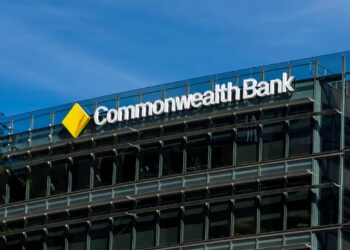Among a sea of global asset managers, an Australian firm has recently garnered recognition from Morningstar for its outstanding ESG leadership. This recognition comes at a time when the demand for and scrutiny of ethical and responsible investing are on the rise.
Magellan and Platinum were among the major names to receive Morningstar’s “Low” ESG commitment level, whereas AMP, Macquarie, and Perpetual all landed in the “Basic” category while Australian Ethical, the pure-play ethical investment manager established in 1986, achieved the highest ESG Commitment Level of “Leader” in Morningstar’s latest assessment.
In a recent interview with InvestorDaily, Australian Ethical’s deputy chief investment officer, John Woods, outlined the key differentiating factors that, in his opinion, define the firm’s unique approach. Among them is a clear separation between the firm’s ethics and investment teams.
“It’s what we do,” he said.
“It’s not like Australian Ethical has a team that doesn’t invest ethically. All of what we do is invest ethically and we have two teams looking at the problem, so an ethics team and investment team, and that separation is really important.”
Delving into Australian Ethical’s selection process, Mr Woods explained that all investments must meet the firm’s criteria.
“If the investment we’re making doesn’t meet our ethical criteria, it doesn’t matter what price it is,” he said.
To exemplify his point, Mr Woods referred to Rio Tinto’s actions in Juukan Gorge in the Pilbara region of Western Australia in 2020.
“That’s not acceptable for us. We just won’t invest.
“There is no price that lets us compromise on our ethics. So that’s a different approach than some other practitioners in this place.”
Regarding the debate between engagement and divestment as catalyst for change, Mr Woods acknowledged that active engagement is integral to Australian Ethical’s approach, but he questioned its effectiveness when companies don’t face a genuine risk of divestment.
“If you’re not prepared to divest, I’m not sure that companies credibly think that you have a seat at this table,” Mr Woods claimed.
According to Mr Woods, companies that Australian Ethical is engaging with are “absolutely aware” that when it publicises a divestment decision, it has an impact.
“I think that has to be a tool in the toolkit when you’re trying to achieve change. Companies we are invested in, we’re very active in the way we vote,” he said.
“We make sure we vote in all those resolutions, and I’d encourage you to dig through some of our competitors and see how they have voted.”
Thinking differently
Addressing concerns about sacrificing returns for ethical investments, Mr Woods, who looks after Australian Ethical’s multi-asset options including its super fund investments, stressed that investors don’t need to compromise.
“What it does require you to do is think differently and be prepared to make decisions that others wouldn’t,” he argued.
In terms of investment opportunities, Mr Woods indicated that Australian Ethical is currently focusing on defensive assets, among other things.
“It’s been 15 years since fixed income offered a good risk-adjusted rate of return. So we’re exploring those asset classes a bit more deeply,” he said.
“Particularly what we’re looking for, if we can find attractive exposures in that sort of cash plus space, and we see a number of ethically-aligned investments in that area.”
Moreover, Australian Ethical has found particular success in funding specialist disability accommodation (SDA) and in microfinance. The firm is also exploring the area of infrastructure debt.
Ethical investing and super
Australian Ethical’s MySuper fund, Australian Ethical (Balanced), has delivered a 7.1 per cent return per annum over the past 10 years. The firm’s Australian Shares fund, which ranks as one of its most popular, has returned 10.2 per cent per annum over the same period
“Australian Ethical has had quite a good performing super fund. In fact, at periods of time, it’s been the top performance super fund for a long period of time, and I think what drives that is super and ethical investing are quite well aligned,” said Mr Woods.
“Super tends to be a long-term investment horizon and ethical investing requires a long-term investment horizon. We’re trying to solve big problems. We’re trying to solve net zero 2050, that’s a similar sort of timeline into people’s journey within superannuation.
“So because ethical investing encourages us to think long term, think about what sectors can solve future problems, I think it lends itself to generating, over a full cycle and a long horizon, strong super returns.”
In its full-year results released in August, Australian Ethical reported a 48 per cent jump in funds under administration to $9.2 billion.
The firm attributed the growth to positive new flows, solid investment performance and the completion of its successor fund transfer with Christian Super.
“Forty-eight per cent is an exceptional year, I’d love it to continue. But I think we’re well positioned to capture investors who are seeking to generate strong financial returns in the right way,” Mr Woods said on Australian Ethical’s outlook.
“Our brand resonates well there. Superannuation continues to be a growing sector and, particularly with unemployment where it is, more people take more jobs, it’s good for super. So I think we’re well positioned to keep growing in that space.”







